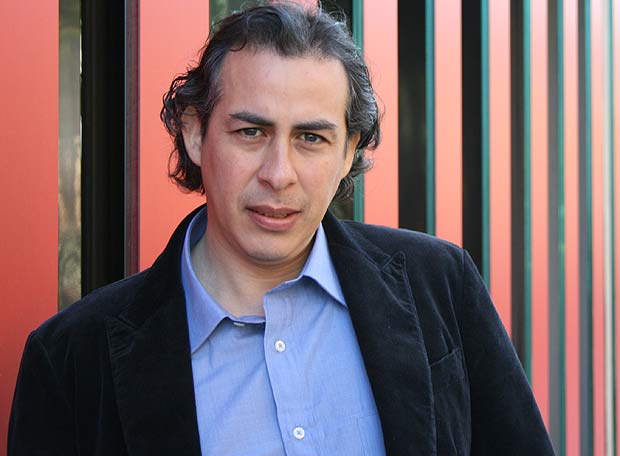
Eder. Óleo de Irene Gracia
Iván Thays
Fuente: ericchangdesign Michiko Kakutani comenta The Original of Laura, la novela póstuma de Vladímir Nabokov que su hijo Dmitrii -contrariando la última voluntad de su padre y las posteriores negativas de la madre- decidió publicar porque el «zumbido» de Laura seguía en su cabeza. ¿Valió la pena publicar este libro?, se pregunta Kakutani. Nos preguntamos todos. Ella responde así:Was Dmitri right to publish ?The Original of Laura: (Dying Is Fun)?? Do the index cards (reproduced with meticulous care by the publisher, Alfred A. Knopf, in an ingenious punch-out format) represent, as Dmitri has said, ?the most concentrated distillation? of his father?s creativity? Does this fragmentary manuscript constitute the makings of ?a brilliant, original and potentially radical book?? Or does the unfinished manuscript ? like works left behind by Ernest Hemingway and published after his death by his estate ? simply feel like an embarrassing and unfortunate coda to the master magician?s oeuvre? In many respects, the release of a rudimentary version of his last novel does a disservice to a writer who deeply cherished precision and was practiced in the art of revision. Just as ?The Enchanter,? a precursor to ?Lolita? that was written in 1939 and published after his death, reads like a crude, often flat-footed version of its famous descendant, so these fragments of ?Laura? ? so cryptic and sketchy ? represent an incomplete, fetal rendering of whatever it was that Nabokov held within his imagination. Yet, at the same time, these bits and pieces of ?Laura? will beckon and beguile Nabokov fans, who will find many of the author?s perennial themes and obsessions percolating through the story of Philip, an ?enormously fat creature? with ?ridiculously small feet, ? and his wildly promiscuous wife, Flora, who seems to have been the inspiration for a fictional character named Laura. (…) The final irony concerning ?The Original of Laura,? of course, is the fact that its very form ? an incomplete manuscript ? recalls a favorite Nabokovian device: the notion of a set of ?strange pages? or imperfect scribblings found, edited or annotated by another character. This device ? H. H.?s memoir edited and published after his death (?Lolita?), say, or John Shade?s poem, introduced and commented upon by a scholar named Charles Kinbote (?Pale Fire?) ? was not only a clever, postmodernist frame deployed by Nabokov in his endlessly inventive pursuit of complication, but it was also a sort of metaphysical statement on Art and the Artist, a rumination upon the inscrutable mysteries of creation.En fin, no sé uds. pero a mí Kakutani me ha convencido. El libro, tal como ha sido editado, respetando las tarjetas, no será una novela pero es un Nabokov legítimo. Y eso es más que suficiente para mí.

